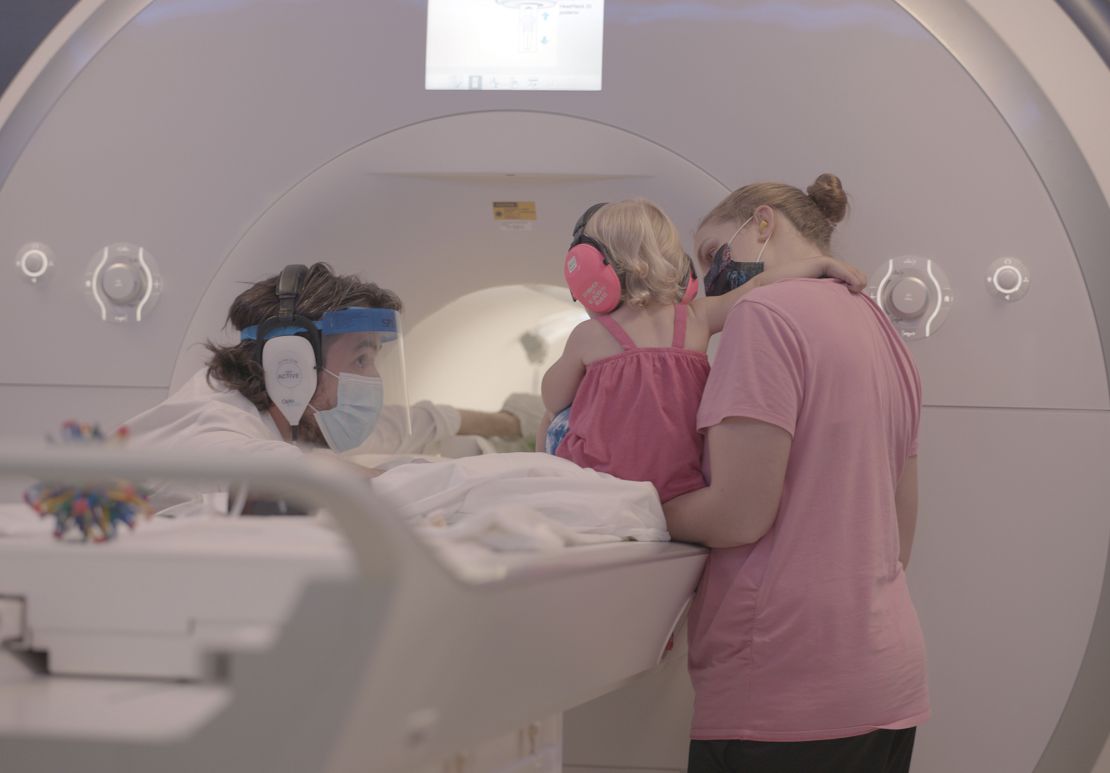Get inspired by a weekly roundup on living well, made simple. Sign up for CNN’s Life, But Better newsletter for information and tools designed to improve your well-being.
Summary
- New research reveals why adults cannot recall infant memories despite having formed them during early development.
- Yale University researchers studied brain activity in 26 infants using fMRI scans while showing them images.
- The study found hippocampus activity was stronger in babies who were 12 months or older during memory encoding.
- Researchers tracked infants’ eye movements to determine which images they recognized from previous viewings.
- Despite memory inaccessibility later in life, early experiences contribute significantly to language acquisition and learning.
This summary was AI-generated and reviewed by CNN editors.
CNN
—
Do you ever wonder what it was like to be a baby? But no matter how hard you try, you can’t remember any of the details?
It’s not that you don’t have memories from infancy — it’s that you simply can’t access them later in life, new research shows.
The study, published Thursday in the journal Science, examined 26 infants ranging from 4.2 to 24.9 months, split into two age groups: those younger than 12 months and those 12 to 24 months.
During the experiment, babies were placed in an fMRI machine and shown a series of unique images for two seconds each. Researchers aimed to record activity in the hippocampus — the portion of the brain associated with emotions, memory and the autonomic nervous system.
“The hippocampus is a deep brain structure that is not visible to standard methods, so we had to develop a new approach for conducting memory experiments with babies inside an MRI machine,” said Dr. Nick Turk-Browne, lead study author and professor in the department of psychology at Yale University, via email. “This kind of research has previously been done mostly while infants are asleep, because they wiggle a lot, cannot follow instructions and have short attention spans.”
Dr. Simona Ghetti, a professor in the department of psychology at the University of California, Davis, whose research focuses on the development of memory in childhood, acknowledged that while many studies have already demonstrated infants’ capacity to encode memories, this latest research is unique in that it links memory encoding to hippocampal activation. Ghetti was not involved in the study.
Related article
Baby food labels will reveal levels of lead and other heavy metals for first time
After a momentary delay, the babies were then shown two images side by side: one of familiar images they had seen before and one that was new. Researchers tracked the babies’ eye movements, noting which image they focused on longer.
If an infant spent more time looking at the familiar image, it suggested they recognized it, indicating memory recall. If they didn’t show any preference, it likely meant their memory was less developed, according to the study.
“Eye movements have been used in hundreds of studies on infant memory and categorization,” Ghetti said via email. “Infants look at what they find interesting, and researchers have long leveraged this spontaneous behavior to derive information about memory functioning.”
Analyzing hippocampus activation

Dr. Nick Turk-Browne (left) preparing a child participant and parent for an infant MRI study in the Brain Imaging Center (now BrainWorks) at Yale University in 2021.
Once they collected the initial data, the team analyzed fMRI scans of babies who looked at the familiar image longer, comparing them with those who had no preference. Trials were excluded if the baby wasn’t focused on the screen and moved or blinked excessively.
The findings revealed that the hippocampus was more active in older infants when encoding memories. Additionally, only older infants exhibited activity in the orbitofrontal cortex, which plays a key role in memory-related decision-making and recognition.
“One thing we have learned about memory in adults is that the information we tend to capture and encode into memory are things that are highly relevant to our experience,” said Dr. Lila Davachi, a professor in the department of psychology at Columbia University, who was not involved in the study. “The amazing thing about this study is convincingly showing hippocampal encoding processes in babies for stimuli that are, in some sense, unimportant to them.”
baby eating fruit puree in pouch and looking into the food in front of the yellow table. on the background is a green garden on a sunny day in blur
Related article
Nearly two-thirds of supermarket baby foods are unhealthy, study finds
Though it’s still unclear why memory encoding seems to be stronger in babies more than 12 months old, it’s likely a result of major alterations taking place in the body.
“The infant brain undergoes many perceptual, linguistic, motor, biological and other changes around this time, including the rapid anatomical growth of the hippocampus,” Turk-Browne said.
Turk-Browne and his team are actively working to test why the brain is unable to retrieve these early memories in life, but he speculates that the brain processing in infants may suggest the hippocampus isn’t receiving the accurate “search terms” to find the memory as it was stored based on the experiences the baby was having at the time.
What does this stage mean for parents?
Ghetti encourages parents to think about the impact infancy has on their children, even if the children can’t retrieve memories they experienced at such an early age.
Babies are learning an enormous amount at this age, which is how they begin to take inan entire language by associating sounds with meanings, Ghetti said. She added that infants are also forming expectations around their family members and studying properties of objects and the world around them.
Parents often see this learned behavior when they sing the same song or read the same book, which Davachinoted produces a familiar response in older children.
“Using repetition with babies will open up a greater connection between parent and baby,” she said via email.
FILE – This Nov. 27, 2015 file photo shows two marijuana buds displayed for a customer in Denver. A government report released on Tuesday, June 17, 2019 shows that pot use in pregnancy has doubled among U.S. women and is most common during the first trimester. (AP Photo/David Zalubowski, File)
Related article
Using marijuana during pregnancy may heighten risk for baby
Even though you can’t recall those earliest memories as an adult, it’s fair to say that you’re learning from those experiences, which can be true for both neutral and emotional information, Ghetti said.
“This can remind parents that infancy is not idletimeand that infants are learning a great deal,” Ghetti said. “Offering opportunities for visual exploration may be important for cultivating learning skills.”

















